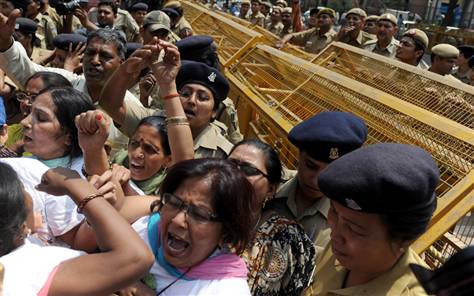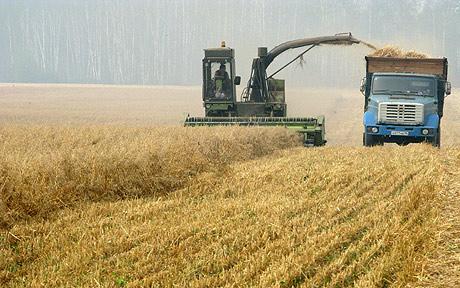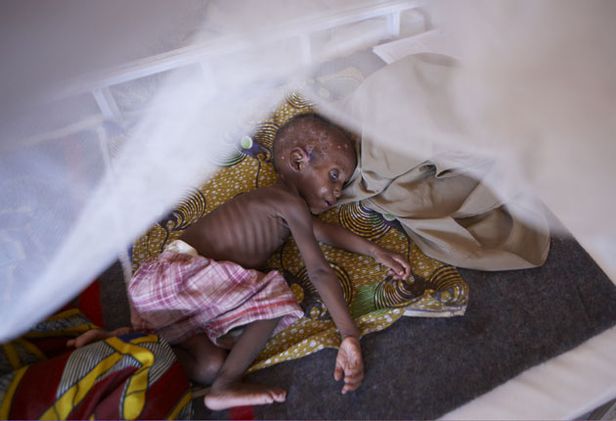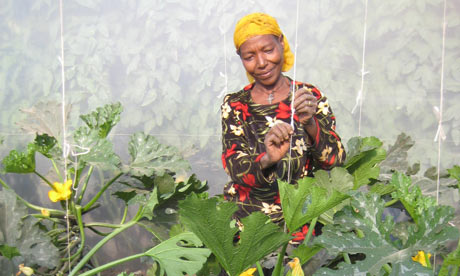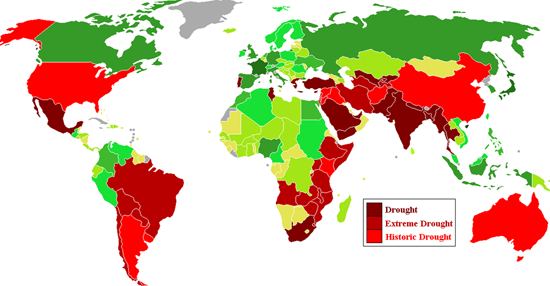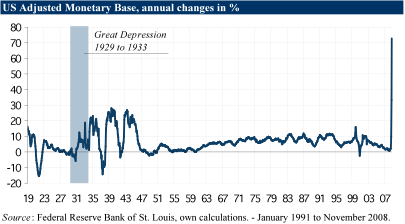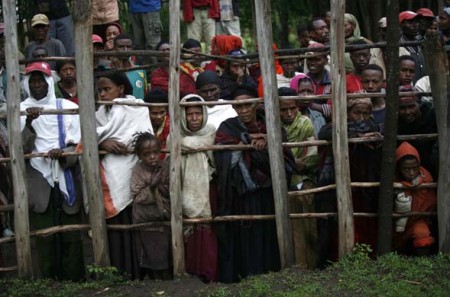Food shortages and exploding food prices, after bankrupting entire nations, are some of the next steps on the elite agenda.
Many believe that H.A.A.R.P. is used to create this chaos, but it is certainly not only H.A.A.R.P that is responsible for all of this chaos that we have created. ( And I am not talking about the global warming scam here.)
We could easily green the entire Sahara desert in only a few years.
We have the technology to do this and it would be unbelievable cheap, but the elite agenda is different.
If we allow them to get away with all their crimes, then we are really in more trouble then we can imagine in our worst nightmares.
Start to grow your own organic garden this year and prepare yourself. By changing our reality we influence the world.
The elitists want to push GMOs as a solution to the coming world hunger crisis, that they themselves have created in the first place.
Déjà Vu All Over Again.
– Max Keiser: Monsanto And The Seeds Of Evil
– The GMO Catastrophe In The US, A Lesson For The World
– Monsanto: GM-Corn Harvest of 82,000 Hectares in South Africa Fails
– Exposed: the great GM crops myth (The Independent):
“Genetic modification actually cuts the productivity of crops, an authoritative new study shows, undermining repeated claims that a switch to the controversial technology is needed to solve the growing world food crisis.”
Food prices are about to explode:
– Australia Floods: Food Prices to Rise 30% – 50% of Crops Affected, With 20% Wiped Out
– India: Food Inflation Up Over 18 Percent In Just One Year
– Algerian Riots Continue Over Skyrocketing Food Prices And Unemployment
Millions of the world’s poorest people and the state of the global economy are threatened by the food price rises

Hunger pains Photo: Getty Images
Within a decade,” promised the top representative of the world’s mightiest country, “no man, woman or child will go to bed hungry.”
Dr Henry Kissinger, at the height of his powers as US Secretary of State, was speaking to the landmark 1974 World Food Conference. Since then, the number of hungry people worldwide has almost exactly doubled: from 460 million to 925 million.
And this week the airwaves have been full of warnings that the formidable figure could be about to increase further, as a new food crisis takes hold. Some experts warned that the world could be on the verge of a “nightmare scenario” of cut?throat competition for the control of shrinking supplies.
The cause of such alarm? On Wednesday, the Food and Agriculture Organisation (FAO) reported that global food prices had hit a record high and were likely to go on rising, entering what Abdolreza Abbassian, its senior grains economist, called “danger territory”.
That is bad enough for Britain, adding to the inflationary pressures from the soaring cost of oil and other commodities, not to mention the VAT increase. But for the world’s poor, who have to spend 80 per cent of their income on food, it could be catastrophic.
Robert Zoellick, president of the World Bank, warns that the rising prices are “a threat to global growth and social stability”, and Nicolas Sarkozy has identified them as a priority for the G20, which he chairs this year.
See also: World Bank’s Wrong Advice Left Silos Empty in Poor Countries
Already they are higher than in 2008, when they drove the tally of the malnourished briefly above a billion for the first time in history, and caused riots in countries as far apart as Indonesia, Cameroon and Mexico. That ended nearly two decades during which the number of hungry people had stayed the same, while the world population grew by 1.2 billion, so that the proportion of an increasing humanity without enough to eat steadily fell.
But the crisis of two years ago, and the one that may be unfolding now, are polar opposites of the one behind the World Food Conference. Then, bad harvests had produced a real shortage. Now, we have bumper crops: the past three years have produced the biggest harvests ever. The issue is not one of supply, but of demand.
The mushrooming middle classes of India and China helped cause the 2008 price hike by eating more meat, which, in turn, mops up grain: it can take, for example, 8lb of cereals to produce one of beef. And cars contributed as well as cows. Biofuels (another project on the elite agenda) transferred over 100 million tons of cereals from plates to petrol tanks: to fill a 4 x 4 tank requires enough grain to feed a poor person for a year. Speculation, too, helped drive prices up.
Read more‘The World Is Only One Poor Harvest Away From Chaos’

